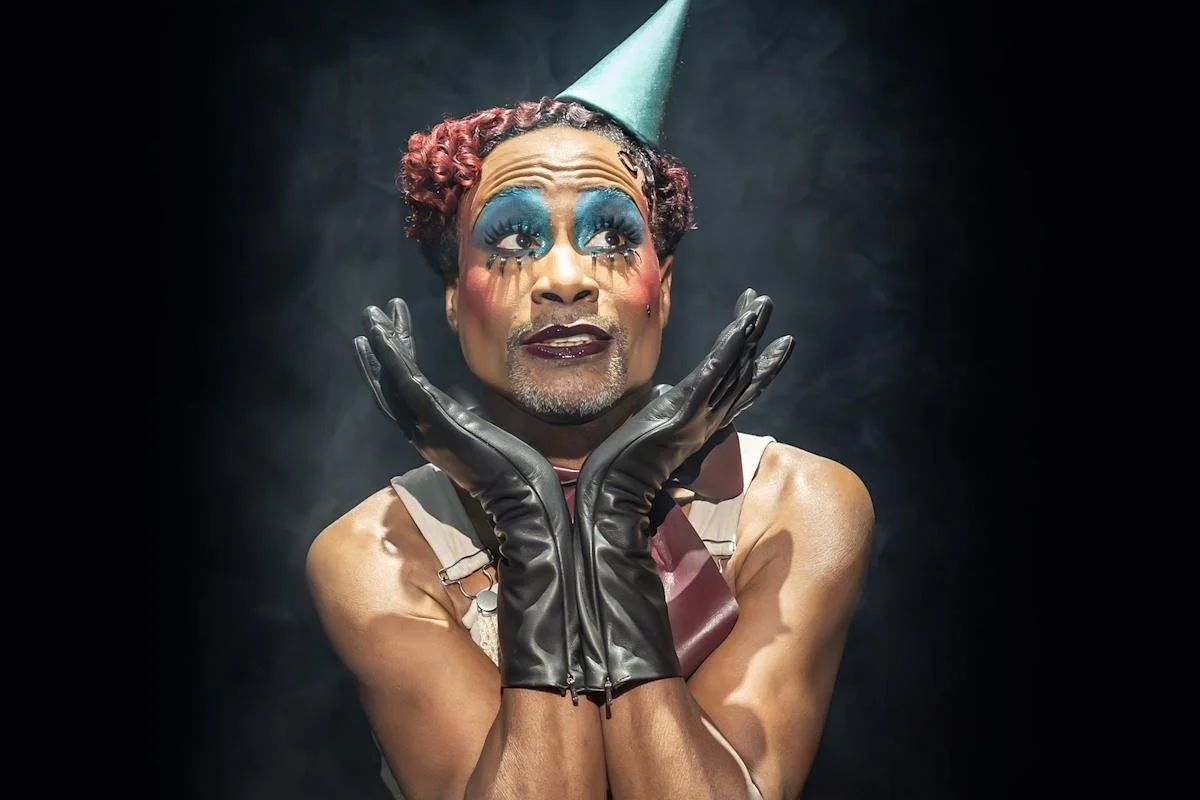The “Cabaret” Lawsuit Story Takes Nasty Turn
Billy Porter in “Cabaret at the Kit Kat Club” (Photo: Marc Brenner)
by Chris Peterson
The curtain has fallen on Broadway’s revival of Cabaret, but the real drama has only just begun. As first reported by the Broadway Journal, one of the show’s investors, Atlanta lawyer James Lorenzo Walker Jr., is suing the producers for fraud and mismanagement. ATG Entertainment, the theatre giant that both produced and housed the show in its own venue, has fired back, calling his claims “wild and unsubstantiated” and painting him as a shakedown artist.
Let’s be clear: this isn’t just a spat between one disgruntled investor and a set of producers. This is a glimpse into how Broadway really works, and it is not pretty.
Cabaret raised an eye-popping $24.25 million in capitalization. That money is gone. Over 610 performances, the production grossed $90.3 million, numbers that might look healthy from the outside. But thanks to ballooning weekly operating expenses of $1.5 million after opening, the show never returned a cent to its investors. Not one dime.
Here’s the thing: everyone knows Broadway is a gamble. Nobody invests in a musical expecting a guaranteed return. But a gamble only works if the house is honest. And in this case, “the house” was literally the house. ATG both owned the August Wilson Theatre and served as lead producer. That is like a casino running the card game, dealing the cards, and betting against you at the same time. You do not need to be a lawyer to see the conflict of interest.
When Walker pressed for detailed records, the response he received from ATG was telling. In a July 30 letter, John Rogers, ATG’s general counsel, accused Walker of only wanting to know “how much the producers have made on the show” and trying to prove that “it’s unfair for producers to get any compensation for their immense efforts to mount a show until equity capital is returned.” Rogers added pointedly, “Of course, you declared that you would be influencing the outcome by inciting a barrage of press coverage.”
Think about that. An investor asks for receipts, and the response is not just to refuse but to accuse him of plotting a media campaign. Walker denies that it was ever his intention, but the exchange itself shows how quickly producers shift the conversation away from transparency and toward discrediting the investor.
And let’s not kid ourselves. This case is unusual not because money was lost, plenty of shows flame out, but because an investor is daring to demand accountability in public. Normally, losses are swept under the rug and explained away with vague platitudes about artistic risk. Meanwhile, producers quietly collect whatever fees they can before a show shutters, while investors are told to take their lumps and keep quiet if they ever want to be invited back into another deal.
That is the real hypocrisy. Broadway producers pitch themselves as visionaries who need patrons to keep the art form alive. To be fair, there are a number of them that are truly that. But when the bets go south, those same patrons are treated as nuisances if they ask where the money went. You cannot have it both ways. If you want people to bankroll your shows, you owe them transparency. Not dismissive letters. Not accusations of extortion. Not the smug insistence that this is just how Broadway works.
Walker might lose in court. He might even be grandstanding. But his lawsuit exposes the rot at the core of Broadway financing, the sense that producers play by one set of rules while investors are expected to accept silence. That dynamic might have worked in the past, but in today’s climate of astronomical costs, shaky attendance, and post-pandemic uncertainty, it will not hold forever.
Broadway needs more than hits. It needs trust. And right now, trust is what is in shortest supply.
